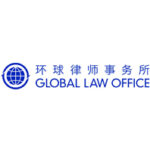-
What is the legal framework (legislation/regulations) governing bribery and corruption in your jurisdiction?
On a federal level, the Criminal Code set out at Schedule 1 of the Criminal Code Act 1995 (Cth) (the ‘Criminal Code’) contains numerous offences falling within the classification of bribery and corruption.
Other offences are contained within state and territory criminal legislation, such as the:
Crimes Act 1900 (NSW).
- Crimes Act 1958 (VIC)
- Criminal Code Act 1899 (QLD)
- Criminal Code Compilation Act 1913 (WA)
Each state and territory has its own anti-corruption legislation. Examples include:
- New South Wales: Independent Commission Against Corruption Act 1988 (NSW)
- Victoria: Independent Broad-based Anti-corruption Commission Act 2011 (VIC)
- Queensland: Crime and Corruption Act 2001 (QLD)
Australia is also party to numerous anti-corruption conventions, including the:
- UN Convention against Corruption 2003
- OECD Convention on Combating Bribery of Foreign Public Officials in International Business Transactions 1997
- UN Convention Against Transnational Organized Crime 2000.
Upon ratification, Australia acceded to implementing domestic measures in accordance with that mandated by the treaties. Therefore, whilst the treaties do not have direct force of law in Australia, their content is in numerous respects incorporated into Australian legislation, for example through the enactment of criminal offences of bribery with respect to national public officials, foreign public officials and officials of public international organizations, as called for under Chapter III of the UN Convention against Corruption.
-
Which authorities have jurisdiction to investigate and prosecute bribery and corruption in your jurisdiction?
Public Prosecutors – Commonwealth and State
The Australian public prosecutors are the Commonwealth Director of Public Prosecutions (‘CDPP’). The CDPP is responsible for criminal prosecutions of offences in breach of Commonwealth laws. The CDPP works collaboratively with government agencies who may refer matters to the CDPP for prosecution following investigations. There are also State and Territory Directors of Public Prosecutions (‘DPP’). The State and Territory DPPs pursue prosecutions for offences under State and Territory laws.
Australian Federal Police
The Australian Federal Police (‘AFP’) is responsible for the investigation of offences under the Criminal Code. As part of their investigations, the AFP can undertake duly executed search warrants to obtain evidence in criminal investigations. The AFP also have the power to make arrests where persons are charged with a criminal offence.
State and Territory Police Forces
State and Territory police forces have the authority to investigate and lay charges in respect of bribery occurring within their respective jurisdictions (except foreign bribery and bribery of Commonwealth officials). Their powers are generally the same as the AFP.
The National Anti-Corruption Commission
The Commonwealth now has an independent agency tasked with investigating corrupt conduct in the federal public sector. Founded on 1 July 2023, the National Anti-Corruption Commission or ‘NACC’, functions in a similar manner to Corruption Commissions at a state level. Its objects are to detect and prevent corrupt conduct, educate the Australian community about corruption in the public sector, investigate serious or systematic corruption and to refer persons for criminal prosecutions, civil proceedings or disciplinary action.1
State and Territory Corruption Commissions
Various State and Territory anti-corruption standing commissions of inquiry exist to investigate corrupt conduct in the public sector, including: NSW Independent Commission Against Corruption, VIC Independent Broad-based Anti-Corruption Commission, QLD Crime and Corruption Commission, and the WA Crime and Corruption Commission. Whilst these Commissions do not have the power to make arrests or bring criminal charges, there is a capacity to make referrals to the prosecutors.
Australian Transaction Reports and Analysis Centre (AUSTRAC)
Tracks suspicious financial transactions that may indicate corruption, particularly in relation to money laundering and financing of illicit conduct.
Footnote(s):
1 National Anti‑Corruption Commission Act 2022 (Cth) s 3.
-
How is ‘bribery’ or ‘corruption’ (or any equivalent) defined?
Pursuant to the bribery offence provisions under the Criminal Code, the giving of a bribe can be broadly defined as providing a “benefit” to another person and the benefit is not legitimately due to the other person and is undertaken with the intention to influence that other person in their official duties in order to obtain business or a business advantage.
A “benefit” is defined as an advantage that is not limited to property. A “business advantage” an advantage in the conduct of business.
Corruption is broader, often encompassing: Abuse of entrusted power for private gain, including nepotism, kickbacks, and misuse of public resources.
New Offence: Failure to Prevent Foreign Bribery
As of 2024, Australia introduced a new corporate offence, and corporations that fail to prevent foreign bribery face penalties running into the tens of millions of dollars.
Under the Crimes Legislation Amendment (Combatting Foreign Bribery) Act 2024 companies will now be held directly liable for the foreign bribery activities of their employees, external contractors, agents and subsidiaries, unless the business can demonstrate that they had adequate procedures in place.
Under the Criminal Code Amendment (Combatting Foreign Bribery) Act 2024, the definition of foreign bribery has been significantly broadened. The offence now covers bribery of candidates for public office, not just current officials, and extends to bribery intended to obtain a personal advantage, in addition to business advantages. The requirement that the benefit be “not legitimately due” has been replaced with the standard of “improperly influencing” a foreign public official, and it is no longer necessary to prove that the influence was over the exercise of official duties. The amended law also clarifies that the offence does not require proof of a specific intended advantage or that the benefit be for the accused themselves.
-
Does the law distinguish between bribery of a public official and bribery of private persons? If so, how is 'public official' defined? Is a distinction made between a public official and a foreign public official? Are there different definitions for bribery of a public official and bribery of a private person?
Part 4A of the Crimes Act 1900 (NSW) deals with corruption in the private sector and also criminalises a range of bribery offences, both public and private. Under section 249B, concerning the offence of corrupt commissions or rewards, it is a crime for an agent to receive or solicit, or for a person to give or offer, any benefit in the following circumstances:
- As an inducement or reward for doing something or showing favour to any person in relation to the agent’s affairs or business, or
- Where the receipt of the benefit would “tend to influence” the agent to show favour to any person in relation to the agent’s affairs or business.
The term “agent” includes but is not limited to:
- Any person employed by or acting on behalf of another person,
- Any person serving under the Crown,
- A police officer, or
- A councillor under the Local Government Act 1993 (NSW).
The maximum penalty is seven years imprisonment. Other States and Territories have similar offences.
On a federal level, the Criminal Code creates offences for the offering, giving or receipt of a bribe to or by a Commonwealth public official or foreign public official where the benefit is intended to influence the official in the exercise of his or her duties as an official.
The definitions of “foreign public official” and “Commonwealth public official” found in the Criminal Code are broad. The definitions encompass an employee of a public international organisation or an individual who is a contracted service provider for a Commonwealth contract.
-
Who may be held liable for bribery? Only individuals, or also corporate entities?
In the federal Criminal Code, both individuals and corporate entities can be held criminally liable for bribery offences.
-
What are the civil consequences of bribery and corruption offences in your jurisdiction?
Bribery is a criminal offence. Private parties cannot directly bring civil suits for cases of bribery.
Regulatory bodies such as the Australian Securities and Investments Commission (ASIC) can pursue civil penalties for breaches of directors’ duties under the Corporations Act 2001 (Cth), particularly where corruption involves misuse of position, failure to act in good faith, or causing harm to the corporation.
-
What are the criminal consequences of bribery and corruption offences in your jurisdiction?
Foreign Public Officials
The offence of bribing a foreign public official under section 70.2 of the Criminal Code requires that:
- A person provides, offers a benefit to another person, or causes another person to receive a benefit.
- The intention of the first person is to improperly influence a foreign public official in the exercise of their official duties in order in order to obtain or retain business or a business or personal advantage.
Individuals are liable to a maximum penalty of ten years’ imprisonment or 10,000 penalty units (AUD 3.13 million as of 7 November 2024) or both.
Corporations are liable to maximum penalty that is the greatest of 100,000 penalty units (AUD 31.3 million), three times the value of a benefit obtained from the offending conduct, or 10% of the corporation’s annual turnover.
Domestic Public Officials
The offence of bribery of a Commonwealth public official under section 141.1 of the Criminal Code.
The offence of bribery of a Commonwealth public official requires that a person:
- Dishonestly provides a benefit to another person, offers a benefit to another person or causes a benefit to be provided to another person.
- Does so with the intention of influencing the second person in the exercise of their duties as a public official.
- That second person is a Commonwealth public official.
It is also an offence for a Commonwealth public official to ask for or receive a bribe.
Individuals are liable to a maximum penalty of ten years’ imprisonment or 10,000 penalty units (AUD 3.13 million), or both.
Corporations are liable to a maximum penalty that is the greatest of 100,000 penalty units (AUD 31.3 million), three times the value of a benefit obtained from the offending conduct, or 10% of the corporation’s annual turnover.
-
Does the law place any restrictions on hospitality, travel and/or entertainment expenses? Are there specific regulations restricting such expenses for foreign public officials? Are there specific monetary limits for such expenses?
The Criminal Code makes no specific reference to hospitality, travel and entertainment expenses in relation to either domestic or foreign bribery. However, these types of expenses could be caught within the concept of a “benefit” under the definition of both offences. Whether such expenses were caught by the offence, would depend on whether the other elements of the offence were also satisfied—most notably, the intent behind the provision and whether the benefit was intended to improperly influence a public official.
There is no specific monetary limitation on what could be considered a benefit, however the Australian Trade Commission (‘Austrade’), in its Anti-Bribery & Corruption Guide for Australians doing business offshore (‘ABC Corruption Guide’) notes that these types of expenses, particularly when “extravagant”, can be a common red flag. Austrade recommends that small to medium businesses include in their anti-bribery and corruption programs, policies on hospitality, gift giving, sponsored travel and entertainment to help identify and reduce risk.2
Footnote(s):
2 Australian Trade Commission, Anti-Bribery & Corruption Guide for Australians doing business offshore, p 15.
-
Are political contributions regulated? If so, please provide details.
At the federal level, contributions to political parties or associated entities are regulated under Part XX of the Commonwealth Electoral Act 1918 (Cth). Political contributions are permitted; however, both the donors and receivers must adhere to the legislated funding and disclosure requirements.
Registered political parties, their state and territory branches, associated entities, third parties, members of the House of Representatives, Senators and donors are required to lodge an annual return with the Australian Electoral Commission (‘AEC’), which is the independent government agency responsible for organising, conducting, and supervising federal Australian elections.3 Donors who meet the threshold must lodge a Donor Election Disclosure Return with the AEC within 15 weeks of the election polling day. The threshold for 1 July 2024 to 30 June 2025 is more than $16,900.4
States and Territories also have their own laws regulating donations, which can be more restrictive.
In New South Wales, there are donation limits imposed by the NSW Electoral Commission in accordance with the Electoral Funding Act 2018 (NSW). For the 2024 – 2025 financial year, the yearly limit for a political donations or indirect campaign contributions to “a registered party or group of candidates” is $7,900.5
Additionally, Electoral Funding Act 2018 (NSW) prohibits certain types of donors, such as property developers or tobacco industry business entities, and a liquor or gambling industry business from making political donations.6
Footnote(s):
3 Australian Electoral Commission, Financial Disclosure, accessed 8 May 2025 https://www.aec.gov.au/parties_and_representatives/financial_disclosure/.
4 Australian Electoral Commission, Disclosure Threshold, accessed 8 May 2025 https://www.aec.gov.au/parties_and_representatives/public_funding/threshold.htm.
5 NSW Electoral Commission, Caps on political donations, accessed 8 May 2025 https://elections.nsw.gov.au/funding-and-disclosure/political-donations/caps-on-political-donations.
6 S51 and S52 of Electoral Funding Act 2018 (NSW)
-
Are facilitation payments prohibited or regulated? If not, what is the general approach to such payments?
While, in respect to foreign bribery the Australia Government recommends that, “that individuals and companies make every effort to resist making facilitation payments”, facilitation payments are recognised in Australia as a complete defence to the core foreign bribery offences in the Criminal Code. However, the facilitation payment defence is very narrow in its operation, under Section 70.4, the “facilitation payment defence” is only applicable where:
- the value of the benefit was of a minor nature;
- the benefit was offered “for the sole or dominant purpose of expediting or securing performance of a routine government action of a minor nature”; and
- as soon as practicable, the person made a record of the payment.
Despite this legal defence, the Australian Government advises individuals and companies to avoid making facilitation payments. Such payments pose significant business risks, are challenging to distinguish from bribes, and may not be permissible under the laws of other jurisdictions.7
As of November 2022, the Australian Government advised the OECD that “the facilitation payment defence has not been an impediment to Australia’s enforcement of the foreign bribery offence”8.
Footnote(s):
7 Australian Government, Attorney-General’s Department, Facilitation payments. https://www.ag.gov.au/crime/foreign-bribery/facilitation-payments#:~:text=The%20Australian%20Government%20recommends%20that,by%20refusing%20to%20make%20payments.
8 OECD, Phase 4 evaluation of Australia: Additional Written Follow-up Report, 2023, p 9.
-
Are there any defences available to the bribery and corruption offences in your jurisdiction?
A handful of defences exist in relation to foreign bribery offences. These include:
- the facilitation payment defence, set out above in question 10;
- if, at the time of the offence, there existed a written law governing the foreign public official which expressly permits or requires the benefit to be given. This defence is contained in section 70.3 of the Criminal Code, and subsection 70.3(1) details the differing elements of the defence that govern different types of public officials.
- in respect to the new failure to prevent foreign bribery offence under section 70.5A, a defence exists if the corporation can show they had adequate procedures in place to prevent the commission of the offence.9 The Australian Attorney-General’s Office has published Guidance on adequate procedures to prevent the commission of foreign bribery (AGD’s Guidance on Adequate Procedures), as was required under the Crimes Legislation Amendment (Combatting Foreign Bribery) Act 2024 (Cth).
Domestic bribery and corruption offences do not have equivalent specific defences.
Footnote(s):
9 Criminal Code, s70.5A.
-
Are compliance programs a mitigating factor to reduce/eliminate liability for bribery and corruption offences in your jurisdiction?
As stated in question 11 above, a complete defence exists to the offence of failure prevent foreign bribery if the corporation can show they had “adequate procedures” in place. Adequate procedures, in effect, require corporations to establish an effective anti-bribery compliance program. The AGD’s Guidance on Adequate Procedures states that such programs should be organised around six key elements:
- Fostering a control environment to prevent foreign bribery (which includes information on the proportionality and effectiveness of procedures)
- Responsibilities of top-level management
- Risk assessment (which includes details on due diligence)
- Communication and training
- Reporting foreign bribery
- Monitoring and review
In respect of other offences, legislation does not presently legislate for mitigation in liability on the basis of a compliance program. However, an offence under the Criminal Code can be attributed to a body corporate if the physical element is committed by an employee, agent or officer of a body corporate acting within the actual or apparent scope of his or her employment, or within his or her actual or apparent authority.10
The fault element can be attributed, if the body corporate expressly, tacitly or impliedly authorised or permitted the commission of the offence.11 This can be established through proof of a corporate culture that tolerated or led to non-compliance with the relevant provision, or the failure to maintain a corporate culture that required compliance with the relevant provision. In these circumstances, the existence and effectiveness of the company’s anti-bribery compliance program can provide a defence to an allegation of foreign bribery.
Footnote(s):
10 Criminal Code, s12.2.
11 Criminal Code, s12.3.
-
Has the government published any guidance advising how to comply with anti-bribery and corruption laws in your jurisdiction?
Other than the AGD’s Guidance on Adequate Procedures, the National Anti-Corruption Commission has provided guidance on how to comply with anti-corruption and bribery laws. Known as the “Integrity Maturity Framework”, it is a set of eight principles to Commonwealth agencies on how to comply with commonwealth integrity laws, practice and procedures.12 Those principles are as follows:
- 1st principle: Values and codes of conduct.
- 2nd principle: Integrity knowledge and performance management.
- 3rd principle: Integrity policies, resources and systems.
- 4th principle: Integrity risk management.
- 5th principle: Prevent, detect and manage fraud and corruption.
- 6th principle: Integrity in public resource management.
- 7th principle: Protect people, information and assets.
- 8th principle: Monitor and evaluate organisational integrity.
There are also four levels of maturity to assess levels of compliance with each principle.
These levels improve the abilities of a commonwealth agency to self-assess its compliance status with anti-corruption laws. They also provide a clear roadmap for an agency on where they need to improve.
Footnote(s):
12 National Anti-Corruption Commission, 8 Integrity Principles and Maturity Indicators: Commonwealth Integrity Maturity Framework, 2023, p 3.
-
Are mechanisms such as Deferred Prosecution Agreements (DPAs) or Non-Prosecution Agreements (NPAs) available for bribery and corruption offences in your jurisdiction?
Currently, there are no mechanisms such as DPAs or NPAs for bribery and corruption offences in Australia. The Crimes Legislation Amendment (Combatting Foreign Bribery) Bill 2023 which introduced the failure to prevent foreign bribery offence was notable in that, unlike previous versions of the bill from 2017 and 2019, it did not include provisions relating to DPAs.
-
Does the law in your jurisdiction provide protection to whistle-blowers? Do the authorities in your jurisdiction offer any incentives or rewards to whistle-blowers?
A comprehensive protection regime exists for the public sector under the Public Interest Disclosure Act 2013 (Cth), which creates a framework to facilitate the reporting of suspected wrongdoing including for bribery and other corruption and to provide protections for persons who make public interest disclosures. In July 2023 the Public Interest Disclosure Amendment (Review) Bill 2022 came into effect, providing increased protections for public sector whistleblowers and witnesses, including by expanding reprisal protections to capture indirect threats.13
With respect to the corporate sector, the whistleblower protection regime under Part 9.4AAA of the Corporations Act 2001 (Cth) was expanded in 2019 under the Treasury Laws Amendment (Enhancing Whistleblower Protections) Act 2019. The new laws: expand the definition of who is considered a whistleblower; allow anonymous disclosures; permit the right to make a disclosure to a regulator without raising the matter internally; provide greater protection to whistleblowers; and require certain companies (public, large proprietary, registrable superannuation entities) to implement clear and accessible whistleblower policies.
While Australian law provides a range of protections for whistleblowers, including the possibility of criminal penalties for individuals who cause, or threaten to cause, harm to a whistleblower, it does not provide for incentives. In 2017, the Parliamentary Joint Committee on Corporations and Financial Services recommended that, in relation to the Public Interest Disclosure Act 2013 (Cth), incentives be provided to whistleblowers if the disclosure results in a penalty for their employer.14 However, this suggestion has not been further progressed, nor supported by other bodies, such as the Law Council of Australia.15
Footnote(s):
13 Australian Public Service Commissioner, State of the Service Report 2022-23, Protection for whistleblowers in the public sector (November 2023), p 87.
14 PJCCFS Report, 138-139, recommendations 11.1 and 11.2.
15 Law Council of Australia, Public sector whistleblowing reforms: Stage 2, 22 December 2023, p 24.
-
Does the law in your jurisdiction enable individual wrongdoers to reach agreement with prosecutors to provide evidence/information to assist an investigation or prosecution, in return for e.g. immunity or a reduced sentence?
The CDPP can provide either an individual with either indemnity or an inducement, in respect of any Commonwealth Offence in accordance with their internal policies. Section 9 of the Director of Public Prosecutions Act (Cth) (‘DPP Act’), permits the Director of the CDPP to make a formal undertaking to a person. These include:
- an undertaking that the evidence given by a person cannot be used in evidence against them, section 9(6) or 9(6B) (‘an inducement’).
- an undertaking that a person will not be prosecuted in respect of specified acts or omission, section 9(D) (‘an indemnity’).
As per the CDPP’s National Legal Direction on Undertakings (Indemnity from Prosecution) and Offers of Assistance (CDPP NDI on Undertakings). An undertaking under section 9 of the DPP Act will only be given provided the following conditions are met:
- the evidence that the accomplice can give is considered necessary to secure the conviction of the defendant or is essential to fully disclose the nature and scope of the offending and that evidence is not available from other sources.
- the accomplice can reasonably be regarded as significantly less culpable than the defendant.16
However, such undertakings are difficult to obtain. The CDPP NDI on Undertakings states that relatively few cases will have the necessary features to be considered eligible.17 It further states that indemnities are very rarely given and will generally only be provided in “exceptional circumstances”.
Footnote(s):
16 CDPP NDI on Undertakings, p 5, para 17; Prosecution Policy, para 6.6.
17 CDPP NDI on Undertakings, p 4, para 15.
-
How common are government authority investigations into allegations of bribery? How effective are they in leading to prosecutions of individuals and corporates?
In NSW, government authority investigations into allegations of bribery and corruption are common.
The Independent Commission Against Corruption (‘ICAC’) was established in 1988 to “protect the public interest, prevent breaches of public trust and guide the conduct of public officials in the NSW public sector”.18 ICAC regularly investigates such conduct and, not infrequently, the result of their investigation is a recommendation that matters be referred to the DPP for further investigation and prosecution. Once the matter is referred, the DPP must then separately determine whether there is sufficient evidence to lay criminal charges. As evidence obtained through ICAC’s coercive powers cannot be used against a defendant, the ability to bring a criminal prosecution can be limited.
Notably, in 2021, ICAC announced that it was investigating whether the sitting NSW Premier had engaged in conduct that constituted or involved a breach of public trust by exercising public functions in circumstances where she was in a position of conflict between her public duties and her private interest.19 In June 2023, after a lengthy investigation and several public hearings, ICAC found that the NSW Premier had engaged in serious corrupt conduct.20
At the same time, ICAC announced that its investigation had been severely hampered by the failure of individuals to report the conduct and advised that it would commence an educative campaign to increase awareness among government agencies of the importance of reporting suspected corrupt conduct.21
Until recently, at the federal level there was no independent government authority with the mandate of investigating corruption and bribery in the public sector. However, in May 2022 a new Federal government was elected and in November 2022 it passed the National Anti-Corruption Commission Bill 2022 establishing the National Anti-Corruption Commission (NACC). The NACC commenced operations in mid-2023. By May 2025, NACC had received 1,916 referrals of suspected corruption at the federal level for financial year 2025 and was conducting 32 corruption investigations. A further 20 investigations were being carried out by other agencies whilst being overseen by the NACC.22
Footnote(s):
18 Independent Commission Against Corruption, About the ICAC, https://www.icac.nsw.gov.au/about-the-nsw-icac
19 Independent Commission Against Corruption, Further Operation Keppel public inquiry, 1 October 2021, https://www.icac.nsw.gov.au/media-centre/media-releases/2021-media-releases/further-operation-keppel-public-inquiry
20 Independent Commission Against Corruption, ICAC finds former premier and then member for Wagga Wagga corrupt, 29 June 2023 https://www.icac.nsw.gov.au/media-centre/media-releases/2023-media-releases/icac-finds-former-premier-and-then-member-for-wagga-wagga-corrupt
21 Independent Commission Against Corruption, ICAC finds former premier and then member for Wagga Wagga corrupt, 29 June 2023 https://www.icac.nsw.gov.au/media-centre/media-releases/2023-media-releases/icac-finds-former-premier-and-then-member-for-wagga-wagga-corrupt
22 NACC, New and media releases, 7 May 2025, https://www.nacc.gov.au/news-and-media.
-
What are the recent and emerging trends in investigations and enforcement in your jurisdiction?
Australia has moved towards comprehensive regulation and aggressive criminalisation of corporate conduct which has included a growing expectation of corporate self-regulation and management. This stemmed, in part, from the 2017 Royal Commission into Misconduct in the Banking, Superannuation and Financial Services Industry which shed light on inadequacies in the management, investigative, and reporting practices adopted by some of Australia’s largest corporate entities.
The potential new corporate offence of failure to prevent foreign bribery that passed on 29 February 2024 is indicative of this shift and the notable push towards corporate compliance in the realm of bribery from Australian agencies and regulators.
-
Is there a process of judicial review for challenging government authority action and decisions? If so, please describe the key features of this process and remedy.
Administrative decisions can be the subject of judicial review under both the common law or through specific legislation such as the Administrative Decisions (Judicial Review) Act 1977 (Cth) and relevant State or Territory judicial review acts.
Judicial review requires that the court review the legality of the decision or action. This will typically involve a consideration as to whether the decision-maker had the power the make the decision, whether they followed proper processes and whether they acted in accordance with the law.
Remedies under the Administrative Decisions (Judicial Review) Act 1977 (Cth) include an order by the court quashing or setting aside the decision, remitting the decision back to the decision maker for further consideration subject to directions from the court, and a declaration as to the rights of the parties in respect of any matter.
-
Have there been any significant developments or reforms in this area in your jurisdiction over the past 12 months?
2023 and 2024 saw significant developments in this field with the passing of the Crimes Legislation Amendment (Combatting Foreign Bribery) Bill 2023 and the commencement of the NACC.
Since the last issue of this publication, the most significant development has been the coming into force of the Crimes Legislation Amendment (Combatting Foreign Bribery) Act 2024 in September 2024 and the related publication of the AGD’s Guidance on Adequate Procedures.
-
Are there any planned or potential developments or reforms of bribery and anti-corruption laws in your jurisdiction?
In 2023, Australia recommenced reforming its anti-money laundering system – a key mechanism for detecting and subsequently preventing and prosecuting bribery.
Australia’s current Anti-Money Laundering and Counter-Terrorism Financing (AML/CTF) regime was introduced in 2006, and in 2007, Parliament commenced the consultation processes for a second tranche of reforms to properly bring Australia in line with international standards set by the Financial Action Task Force (FATF).
After protracted debate and significant public engagement, in November 2024, Parliament passed the Anti-Money Laundering and Counter-Terrorism Financing (AML/CTF) Amendment Bill, amending the AML/CTF Act. This will come into effect on 1 July 2026. In summary the new rules will cover:
- AML/CTF programs
- reporting groups (formerly ‘designated business groups’)
- customer due diligence
- travel rule
- compliance reports
- keep open notices (formerly ‘Chapter 75 notices’)
- correspondent banking relationships
A significant change in these reforms is the regulation of ‘high risk’ services. These reforms will expand government regulation into industries deemed to be high risk for criminal exploitation domestically and internationally. These services now have additional reporting obligations to AUSTRAC. Those include:
- real estate professionals
- dealers in precious stones and metals
- professional service providers such as lawyers, accountants, and conveyancers
-
To which international anti-corruption conventions is your country party?
Refer to question 1.
-
Do you have a concept of legal privilege in your jurisdiction which applies to lawyer-led investigations? If so, please provide details on the extent of that protection. Does it cover internal investigations carried out by in-house counsel?
Australia recognises client legal privilege (‘CLP’), or legal professional privilege (‘LPP‘), as at common law. Broadly, it protects legal advice given by a lawyer to their client, and communications between the lawyer and their client relating to contemplated litigation or court proceedings. The privilege belongs to the client, and only they can waive the privilege.
In some state and territory jurisdictions the privilege has been legislated. In NSW, LPP is derived from sections 118 and 119 of the Evidence Act 1995 (NSW). It applies to communications or documents, brought into existence for the “dominant purpose” of either:
- enabling the client to obtain, or the lawyer to give legal advice or provide legal services, or
- for use in existing or anticipated litigation.
In Australia, LPP applies to lawyer-led investigations, provided those investigations are being conducted for the primary purpose of legal advice or for existing or anticipated litigation. LLP can apply documents prepared by, or communications with, in-house legal counsel, however, a higher level of scrutiny is required when applying the dominant purpose test.
-
How much importance does your government place on tackling bribery and corruption? How do you think your jurisdiction’s approach to anti-bribery and corruption compares on an international scale?
As signified by the passing of the 2023 Foreign Bribery Bill and the establishment of the NACC the new federal government is placing high important on tackling bribery and corruption, advising the OECD in November 2022 that it “is strongly committed to combatting corporate crime and bribery of foreign public officials”23.
The Government’s intent to target corporate misconduct in this area was also clear to see at Attorney-General Mark Dreyfus’s second-reading speech for the 2023 Foreign Bribery Bill, on 22 June 2023. He explained that the bill does not contain a deferred prosecution agreement scheme (DPAs), as:
“When ordinary Australians commit crimes, they feel the full force of the law. However, under the deferred prosecution agreement scheme proposed by the former government, companies that engaged in serious corporate crime, including foreign bribery, would have been able to negotiate a fine, agree to a set of conditions and have their cases put on indefinite hold.”
Australia’s approach to anti–bribery and corruption is of a comparable international standard. Australia is a signatory to the Organisation for Economic Co-operation and Development’s (OECD) Anti-Bribery Convention. The Phase 4 review of Australia’s implementation of the Anti-Bribery Convention was completed in December 2017, and the Phase 4 follow-up in 2019. In the 2021 addendum, the OCED noted that Australia has continued to progress with its recommendations, with only a handful still considered unimplemented. Australia’s implementation has now been further progressed since the implementation of the failure to prevent bribery offence.
Despite this, Australia still has scope to improve its performance in tackling bribery and corruption. While Australian government agencies have the tools required to act, there has been limited results in effectively carrying out prosecutions. As the OECD notes in their most recent report, since the entry into force of Australia’s foreign bribery legislation 20 years ago, only two corporate entities and six individuals have been sanctioned.24 The OECD considers this a low enforcement rate, particularly given the size of Australia’s economy and the high-risk sectors in which Australian companies operate.25
Footnote(s):
23 OECD, Phase 4 evaluation of Australia: Additional Written Follow-up Report, 2023, p 13.
24 OECD, Implementing the OECD Anti-Bribery Convention Phase 4 Follow-Up Report: Australia, 2021, p 6.
25 Ibid.
-
Generally, how serious are corporate organisations in your country about preventing bribery and corruption?
Corporate Organisations in Australia are serious about preventing bribery and corruption, and have significant governmental guidance on how to meet their obligations. For instance, the Attorney-General’s Department provides detailed guidance on how to implement adequate procedures to prevent the commission of foreign bribery offences.26 In particular it detailed:
- Responsibilities of top-down management – which includes overseeing the development of anti-bribery codes of conduct, eliminating inappropriate incentives, as well as promoting and raising awareness on the organisation’s program
- Communication and training – which includes it being provided continuously to all an organisations’ employees
- Reporting foreign bribery – which includes whistleblower protections as well as timely and appropriately conducted reporting procedures
Footnote(s):
26 Attorney-General’s Department, Guidance on adequate procedures to prevent the commission of foreign bribery, August 2024.
-
What are the biggest challenges businesses face when investigating bribery and corruption issues?
There are several challenges businesses face when investigating bribery and corruption issues within their corporate structure. An absence of resources or internal infrastructure will impact a company’s ability to undertake the required due diligence, particularly in respect of monitoring and investigating the conduct of third parties. Ultimately, an absence of appropriate structures will limit an organisation’s ability to detect violations of anti-corruption laws by those third parties, for which the Australian entity may ultimately be held accountable.
In addition, depending on the size of the entity and the issues, the business must have the capacity to properly resource the investigation. External assistance may be required; independent counsel and legal advice can be advisable to ensure the impartiality of the investigation and, depending on the complexity of the money flows, forensic accountants may be beneficial.
Other challenges can include the diverse laws and language of the region in which the conduct took place, and the potential cross-border consequences of the conduct. It is crucial that entities undertaking an investigation understand where liability might arise in other jurisdictions and appropriately manage the risks.
-
What are the biggest challenges enforcement agencies/regulators face when investigating and prosecuting cases of bribery and corruption in your jurisdiction? How have they sought to tackle these challenges? What do you consider will be their areas of focus/priority in the next 18 months?
One of the most significant challenges enforcement agencies/regulators face are the long-standing difficulties in attributing criminal wrongdoing to corporate actors.
In the Australian Law Reform Commission report on Corporate Criminal Responsibility,27 it was noted that corporations are most often prosecuted for minor regulatory offences, smaller corporations are more likely to be prosecuted than larger corporations, and prosecutors withdraw a significantly higher number of charges against corporations than against individuals for corporate crimes. The report found that the complex mechanisms for attributing criminal responsibility to corporations under federal law pose real difficulties for prosecution.28 While these concerns were not specific to the issue of bribery and corruption, these same complexities limit the Australian enforcement agencies to effectively investigate and prosecute these crimes when corporate actors are involved.
We see that a key area of focus will be the prosecutions for foreign bribery and corruption offences following the Crimes Legislation Amendment (Combatting Foreign Bribery) Act 2024 coming into effect. As explained below at Q29, these amendments will expand the scope of conduct which can be criminalised. This includes hold companies directly liable for the foreign bribery activities of any of their employees, including external contractors, agents and subsidiaries. The expanded scope may enable the prosecution of offences beyond minor regulatory offences detailed in the ALRC’s report.
Footnote(s):
27 Australian Law Reform Commission, Corporate Criminal Responsibility (ALRC Report 136).
28 Australian Law Reform Commission, Corporate Criminal Responsibility (ALRC Report 136), p 7 -9.
-
How have authorities in your jurisdiction sought to address the challenges presented by the significant increase of electronic data in either investigations or prosecutions into bribery and corruption offences?
The authorities in Australia have not made any comment about the challenges of electronic data in relation to the investigation or prosecution of bribery and corruption offences.
-
What do you consider will be the most significant bribery and corruption-related challenges posed to businesses in your jurisdiction over the next 18 months?
One of the biggest corruption-related challenges businesses will face in the next 18 months will likely be responding to the changed legislative landscape. In September 2024, the Crimes Legislation Amendment (Combatting Foreign Bribery) Act 2024 came into effect. The new foreign bribery offences within this reform significantly broaden the scope of conduct that could be caught by the Criminal Code– increasing the risk to any company with operations outside of Australia. The new offence will hold companies directly liable for the foreign bribery activities of any of their employees, including external contractors, agents and subsidiaries. Unless the company can demonstrate that it has ‘adequate procedures’ in place to prevent bribery, it could be held criminally responsible for the actions of third parties. As a result, businesses will be required to quickly and comprehensively implement procedures dealing with bribery, to reduce their risk of criminal exposure.
-
How would you improve the legal framework and process for preventing, investigating and prosecuting cases of bribery and corruption?
The implementation of a Commonwealth Deferred Prosecution Agreement scheme could assist in ensuring that Australia meets international standards and improves its ability to prevent, investigate and prosecute cases of bribery and corruption. DPAs have already been implemented successfully in the United States and the United Kingdom, and given the similarities in our legal systems, will likely enable a more effective resolution of bribery and corruption matters, while encouraging increased self-governance and regulation by corporations.
In addition, the ALRC’s recommendations in their 2020 report regarding the simplification of the laws attributing misconduct to corporate actors should be adopted in full.
Australia: Bribery & Corruption
This country-specific Q&A provides an overview of Bribery & Corruption laws and regulations applicable in Australia.
-
What is the legal framework (legislation/regulations) governing bribery and corruption in your jurisdiction?
-
Which authorities have jurisdiction to investigate and prosecute bribery and corruption in your jurisdiction?
-
How is ‘bribery’ or ‘corruption’ (or any equivalent) defined?
-
Does the law distinguish between bribery of a public official and bribery of private persons? If so, how is 'public official' defined? Is a distinction made between a public official and a foreign public official? Are there different definitions for bribery of a public official and bribery of a private person?
-
Who may be held liable for bribery? Only individuals, or also corporate entities?
-
What are the civil consequences of bribery and corruption offences in your jurisdiction?
-
What are the criminal consequences of bribery and corruption offences in your jurisdiction?
-
Does the law place any restrictions on hospitality, travel and/or entertainment expenses? Are there specific regulations restricting such expenses for foreign public officials? Are there specific monetary limits for such expenses?
-
Are political contributions regulated? If so, please provide details.
-
Are facilitation payments prohibited or regulated? If not, what is the general approach to such payments?
-
Are there any defences available to the bribery and corruption offences in your jurisdiction?
-
Are compliance programs a mitigating factor to reduce/eliminate liability for bribery and corruption offences in your jurisdiction?
-
Has the government published any guidance advising how to comply with anti-bribery and corruption laws in your jurisdiction?
-
Are mechanisms such as Deferred Prosecution Agreements (DPAs) or Non-Prosecution Agreements (NPAs) available for bribery and corruption offences in your jurisdiction?
-
Does the law in your jurisdiction provide protection to whistle-blowers? Do the authorities in your jurisdiction offer any incentives or rewards to whistle-blowers?
-
Does the law in your jurisdiction enable individual wrongdoers to reach agreement with prosecutors to provide evidence/information to assist an investigation or prosecution, in return for e.g. immunity or a reduced sentence?
-
How common are government authority investigations into allegations of bribery? How effective are they in leading to prosecutions of individuals and corporates?
-
What are the recent and emerging trends in investigations and enforcement in your jurisdiction?
-
Is there a process of judicial review for challenging government authority action and decisions? If so, please describe the key features of this process and remedy.
-
Have there been any significant developments or reforms in this area in your jurisdiction over the past 12 months?
-
Are there any planned or potential developments or reforms of bribery and anti-corruption laws in your jurisdiction?
-
To which international anti-corruption conventions is your country party?
-
Do you have a concept of legal privilege in your jurisdiction which applies to lawyer-led investigations? If so, please provide details on the extent of that protection. Does it cover internal investigations carried out by in-house counsel?
-
How much importance does your government place on tackling bribery and corruption? How do you think your jurisdiction’s approach to anti-bribery and corruption compares on an international scale?
-
Generally, how serious are corporate organisations in your country about preventing bribery and corruption?
-
What are the biggest challenges businesses face when investigating bribery and corruption issues?
-
What are the biggest challenges enforcement agencies/regulators face when investigating and prosecuting cases of bribery and corruption in your jurisdiction? How have they sought to tackle these challenges? What do you consider will be their areas of focus/priority in the next 18 months?
-
How have authorities in your jurisdiction sought to address the challenges presented by the significant increase of electronic data in either investigations or prosecutions into bribery and corruption offences?
-
What do you consider will be the most significant bribery and corruption-related challenges posed to businesses in your jurisdiction over the next 18 months?
-
How would you improve the legal framework and process for preventing, investigating and prosecuting cases of bribery and corruption?



















